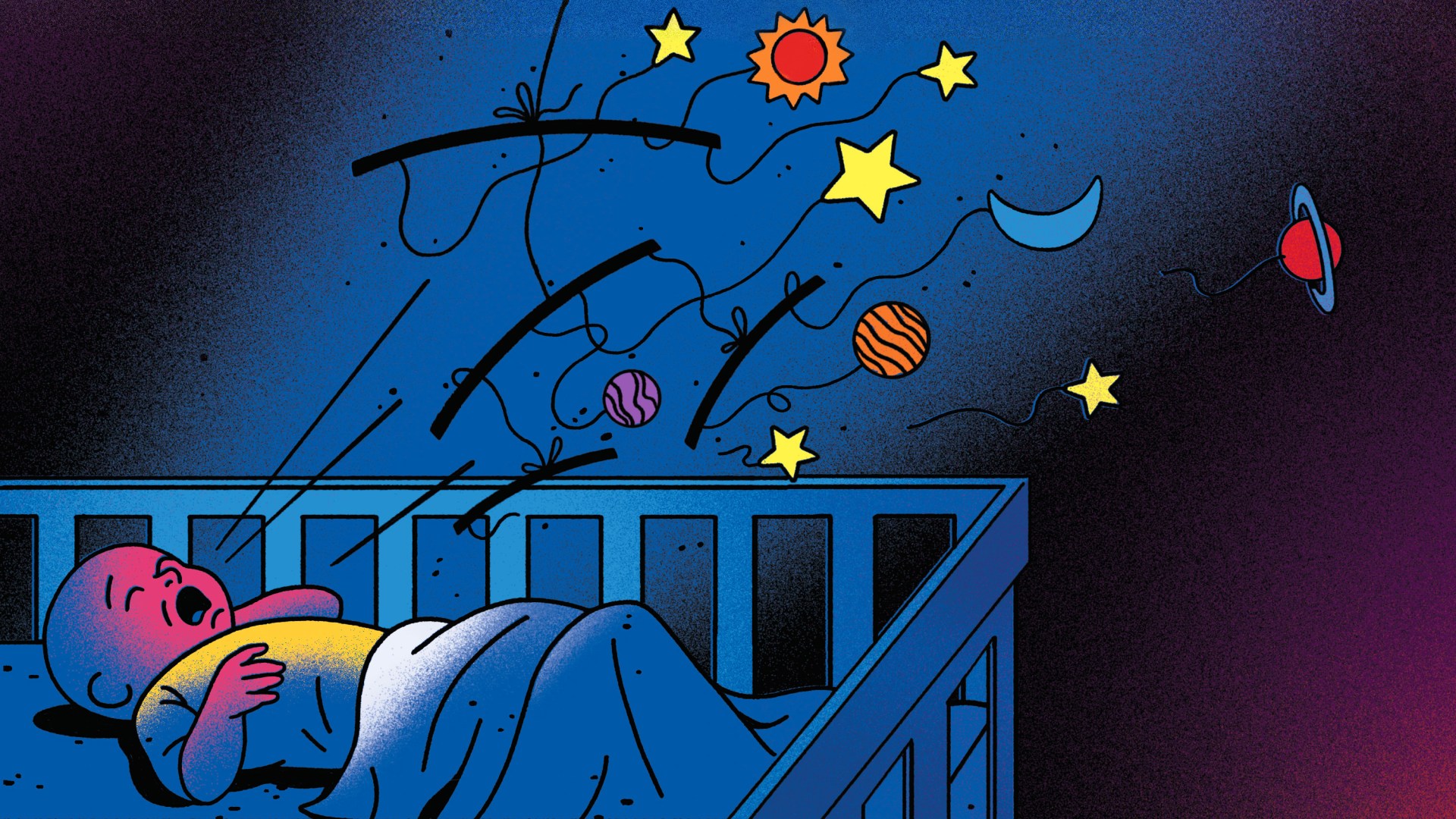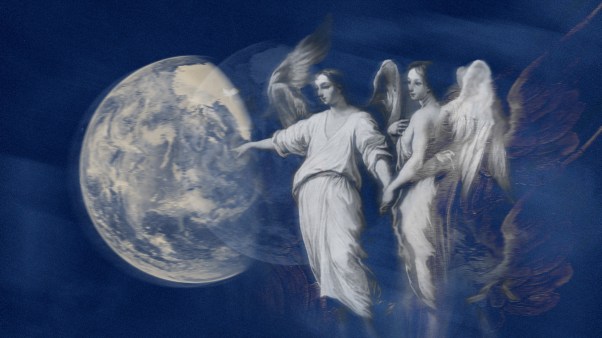To see how much we really want to peer into the mystery of the Incarnation, go to a Christmas pageant and note whether there’s a plastic doll in the manger or a live baby.
The doll makes more sense, of course, because babies aren’t predictable. A director can’t give notes as to when a cry might drown out a shepherd’s lines or when loud wailing might ruin the mood leading into the singing of “Silent Night.” In the crying, though, we hear a better echo of Bethlehem.
Our life histories start with our own “nativity scenes”—usually, these days, under fluorescent hospital lights. We don’t remember any of that about ourselves, of course, but some of us get to see that origin story of a child. The moment leaves some people, such as writer Carlos Fuentes, silent with awe.
“I cannot explain it. Nor can I imagine it. I can only bear witness to it,” Fuentes wrote of watching the birth of his first child. “The moment Cecilia emerged and cried out for the first time, I knew that I was hearing a proclamation of nature, the newest, but also the most ancient.”
He continued,
To hear the voice of a human being coming into the world is to hear the echo of the origin of all things. To hear an impassioned song. When a little girl is born she doesn’t cry out simply because it’s the most natural thing to do. Her true nature is asserting itself at that moment, through her voice, the conduit that carries her toward society, culture, love. The miracle of birth is nothing more than that.
Human babies cry. In those cries we hear pleas to be fed, to be held or changed, or to be sheltered from loud noises or bright lights. Sometimes we don’t know how to decipher what’s behind those yells and tears.
Literary scholar Jonathan Rogers once noted that the English word infant is rooted in language for one who is “too young to speak.” The cry, and the response to that cry, is part of how an infant learns to attach to parents.
“In responding to the child’s needs for food, for relief from pain, for loving contact, the parent is helping her identify her wants, and how they can be fulfilled,” writes philosopher Charles Taylor. “What could otherwise turn into emotional storms of frustration are given a definite purpose and a recognizable remedy.” It’s from this interchange, which Taylor calls “communion,” that language emerges and a life is given shape.
Sigmund Freud saw in the state of the demanding, crying infant a kind of “limitless narcissism,” and he saw the longing to return to that state as being part of the motivation for spirituality. “The origin of the religious attitude can be traced back in clear outlines as far as the feeling of infantile helplessness,” he wrote. “There may be something further behind that, but for the present it is wrapped in obscurity.”
The words something further behind that are carrying a lot of weight there. As in many areas, Freud’s reductionism doesn’t fare well in further study.
Ariel Dorfman notes that psychologists have discovered an infant cries louder when hearing the distressed cries of other infants. That’s true even compared to playing back an audio recording of the baby’s own cries. Dorfman said,
Think about it: a baby is more upset by the voice of someone else’s agony than by her own troubles. The baby intensifies the cries in solidarity with the other, shares the pain, signals to the other child that he is not alone. For me, this is proof, if we ever required it, that compassion is ingrained in our species, coded inside the circuits of our brain. This is how we managed to become human, by creating the conditions for a social network where the suffering of others is intolerable, where we need to pity and comfort the afflicted.
But, as with other matters of human motivation, Freud is partly right. A cry does reveal the baby’s utter dependence and vulnerability before powers out of the baby’s control, powers that Freud labels “fate.”
The apostle Paul called such uncontrollable forces the “elementary principles of the world,” to which we were once enslaved (Gal. 4:9, ESV throughout). That slavery is to what Paul labeled “the flesh”—our chaotic desires and needs severed from the God who loves us. The interruption of that slavery does not start with heroic action or even with disciplined maturity but with a cry, as if from a baby: “Abba! Father!” (Rom. 8:15).
That cry isn’t a fully articulated or articulatable expression of needs but rather the vulnerable dependence sometimes conveyed as “groanings too deep for words” (v. 26). That’s because we, like a newborn, cannot verbalize or conceptualize what we want, much less what we need.
Jesus taught us that we did not need to approach God with “many words” or “empty phrases,” since our Father knows what we need before we ask him (Matt. 6:7–8). Our prayer, then, isn’t an advance into spiritual mastery but a falling back into something so primal that it’s what we were trying to do when we still had our umbilical cords. We learn to say “our Father” before we even learn to ask for “our daily bread” (vv. 9, 11).
It is only to be expected that what the Spirit does in us immediately after our second birth is what the Word that called us into existence primed us to do: cry out. And in the second birth, as in the first, we sometimes thrash around, alarmed by what seems to be chaos. Only later do we see that what seemed to be a crisis was the entrance into life.
One of the mysteries of the Incarnation is that the Word who called the heavens and earth into being became flesh—beginning right where we did, as a baby whose words were only wails. Those crying baby sounds say more than a cheery “Merry Christmas” ever could. And when they interrupt our pageants or carols, let’s stop, just for a moment, in awe.
Let heaven and nature scream. In those cries, we just might hear a familiar voice.
Russell Moore is CT’s editor in chief.













